Willow Lessman: The will to do more
Willow Lessman works to improve the Special Education Department
March 11, 2019
When Willow Lessman and her twin brother Trey were three, her parents started to notice something odd. Even though they were the same age, Willow seemed to be advancing much quicker than her twin. Concerned about the possibility of developmental delays, the Lessman’s took their son to the family doctor who concluded that he had ADHD. Event though her parents still felt this wasn’t the correct diagnosis, they ultimately waited a few more years before seeking a different prognosis. In 2000, Trey saw a specialist who diagnosed him with a mild form of Autism, which now would be considered Level 1 on the Autism spectrum.
“Trey is very smart, but lacked appropriate communication and social skills, and had a very hard time making friends when we were younger,” said Lessman who, with her brother, started high school at LSE in 2008.
It’s what happened next, at this school, that really set Lessman on the path to her career.
“It wasn’t until we came to Southeast when I really saw a difference in what the teachers and Special Education Department were doing for him. Seeing that was a big part in inspiring me to do what I do today,” Lessman said.
Willow Lessman is now a Paraprofessional in the same Special Education Department that helped her brother.
Special Education teachers work with students who have a wide range of learning, mental, emotional and physical disabilities. They follow their student’s Individualized Education Programs (IEPs), which, according to the LSE Special Education website, is a written statement for each person with a disability that describes their educational program. It is developed, reviewed, revised and implemented in accordance with the special education laws and regulations. Each IEP is a vital document as it spells out, among other things, the special education the person will receive.
A typical day in the life of Lesman starts with her going to the staff lot to pick up her student from his parents. They talk about his night, if he’s in a good or bad mood, and if there is something she needs to watch out for in regards to his care. Then they go to the classroom to meet up with the other students.
“I try to greet every one of our students before class and make sure to ask them one thing the enjoyed about their night and/or weekend,” said Lessman who tries to establish a positive atmosphere at the start of every day.
According to Lessman, Adaptive P.E. is the best way to start the day. The activities in this class vary. They play dodgeball, kickball, basketball, volleyball, and practice yoga. Also, every Thursday, they go to the weight room and sometimes swim with the students. Third Period is Communication Skills, where Lessman works one-on-one with a student to get him more involved with his peers by being able to say hi and bye without any prompting. Then it’s Reading 4th period and Math 5th period.
“Each week [in Reading], there is a different unit they are learning about. Last week was “hobbies,” so I’m super excited to see what our unit is for this week!”
During first lunch, Lessman helps her students gather their food, use polite manners, learn to throw away their trash and clean their seat.
Seventh period is Work Skills, a class where students learn about different jobs every week. One week, they will work in the cafeteria by wiping the staircase rails, wiping tables, and pushing tables to the side as soon as they get cleaned off. The following week, they recycle. Every day is a new hallway to recycle.
“The students really look forward to organizing the recycling bins and earning quarters to buy their pops at the end of the week,” Lessman said.
One of Lessman’s favorite periods is 8th – Rec and Leisure. “[We do] a lot of crafts, dancing, and singing during this period, and it’s just a fun way for the kids to end their school day.”
Having a strong, positive and upbeat environment is really important for any kid to succeed in school and to enjoy themselves while doing so. For that to happen you have to have some pretty amazing people that contribute to that department.
“Our Special Education Department is unique in the sense that we are always able to come together and figure out what our students need to be successful. There are always going to be challenging students that may not want our help, but we’re able to come up with ways to make sure our students needs are being met, and I think that’s super important to have in a department,” Lessman said
Having a strong bond with your colleagues is very crucial for any job, especially when it’s other people’s education on the line. It’s not work, if you enjoy your job and if you are working with friends.
“We’re all really good friends, there have been numerous times where we have gone out as a department and had so much fun together!” Lessman said.
Even though the job has quite a few fun times, there are also some challenges. Being a Para, you have to be able to collaborate with other teachers to try to help the students in the department reach their potential and also participate with their other high school peers.
“It can be challenging when our students want to take a class outside of our department,” Lessman said. “We’ve been very fortunate to have teachers accept our students into their classrooms. Mrs. Leader is a perfect example. We had two girls in wheelchairs who wanted to take dance class. She was fantastic with ongoing accommodations for the students so they could be involved. Dance a lot of times was held in the wrestling room, so she would roll some mats so the girls could be close to the other student’s because their wheelchairs weren’t allowed on the mats. It was pretty great of her.”
With all the great things LSE and the students do for the Special Education Department, there are some things that need to be discussed and improved on.
“LSE could prepare our general education students more on the potential behaviors they could see with our students. We do have some students that get very aggressive, that may scream or hit themselves, and I just want our students to know that it’s okay, it is normal behavior for the student, and they shouldn’t be afraid of our students. I would also like to see more students being kind to each other in the hallway. [They need] to be courteous for kids who use wheelchairs and that need access to the ramps. A lot of the time we have to ask kids to move out of the way of the student or to let us use the ramp and we catch some attitude from simply asking,” Lessman said.
This field of work requires patience and empathy. Special Education teachers spend their entire school day with their students students everyday, whereas general education teachers only have their students for fifty minutes a day.
“Patience can be challenging at times. It’s easy to get annoye d, grow impatient and other little things when working with students,” Lessman said. “I feel like it’s like this for most people in education. I always remind myself that the way I react can completely change the mood of my student and how their day goes.”
While some days are more trying than others, Lessman has an interesting and uplifting way to get her students out of their “bad day fog” and in the mood to work and get their tasks accomplished.
“I sing and dance a lot in the classroom, maybe it isn’t the best thing… but it makes [my students] happy and puts them in a good mood, so they want to accomplish things and finish their assignments,” Lessman said with a smile on her face.
It’s not difficult to see that Lessman enjoys her job and is willing to put a lot of effort into her career and students, so that she can help them reach their highest potential.
“The best part of my job is making a difference. Seeing how kids change from their freshman year to their senior year. I love seeing how much they grow individually. These kids are rambunctious, sweet, funny, sensitive and amazing, everyday is different with them and I wouldn’t have it any other way,” Lessman said.

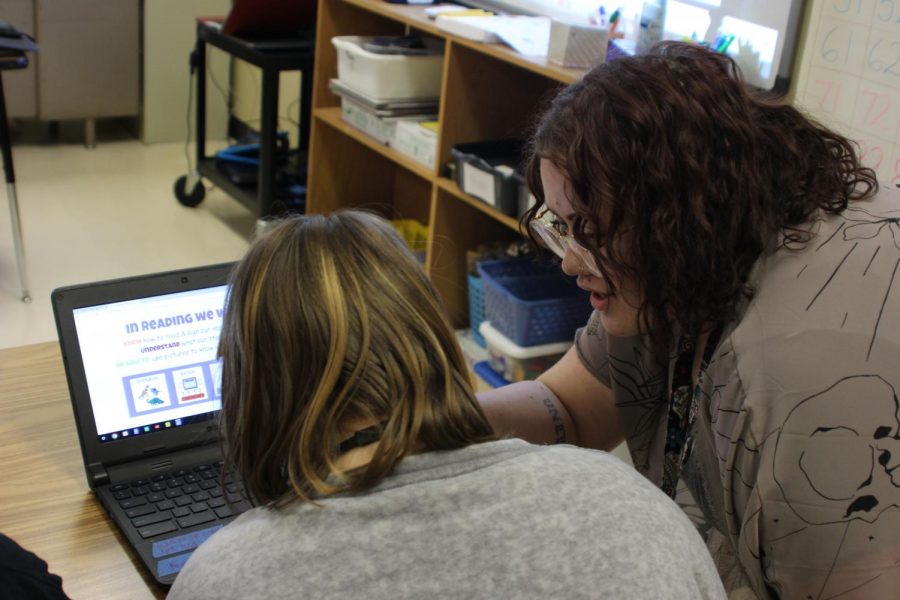


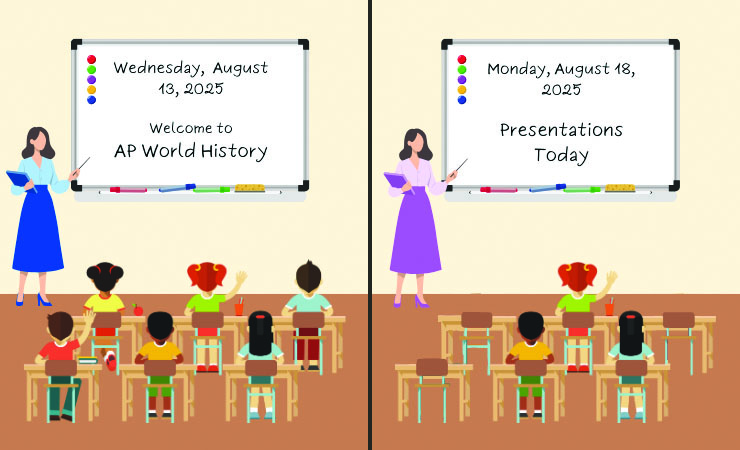
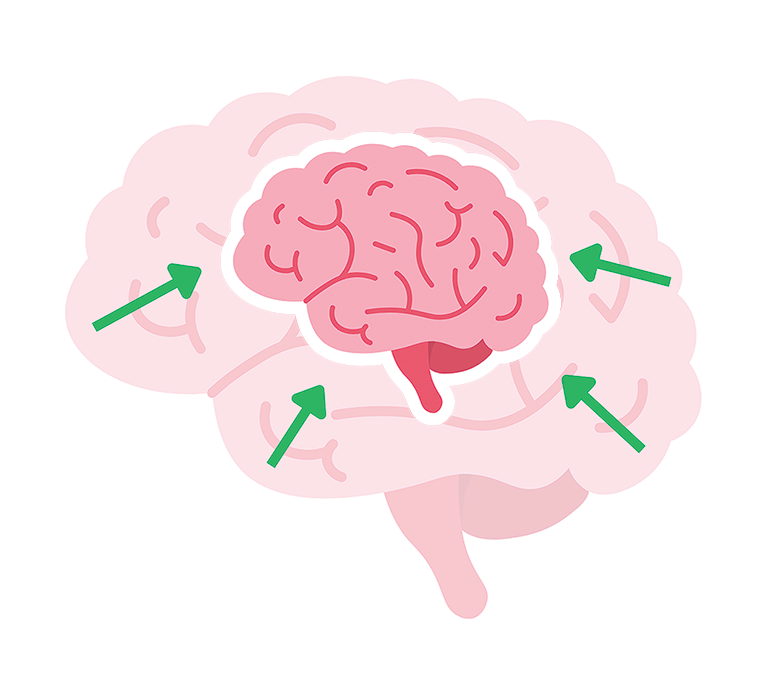

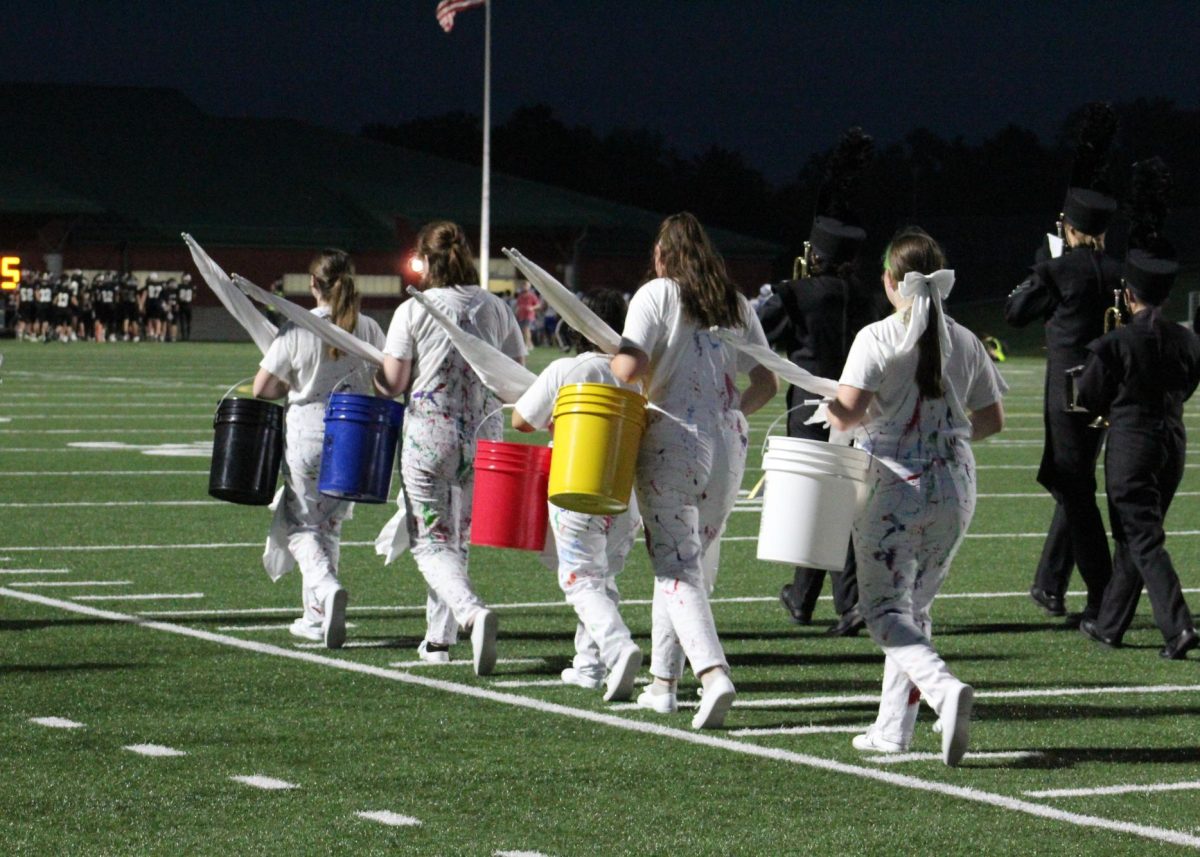

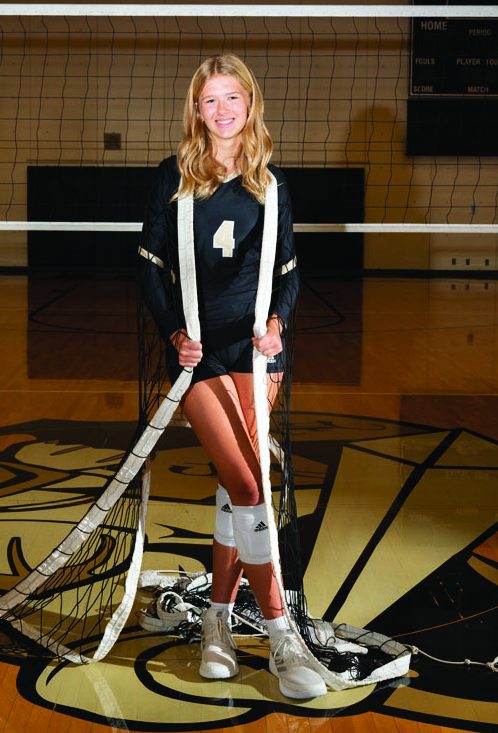
Jane Cech • Mar 14, 2019 at 10:38 AM
Way to go Willow! You are making a huge difference in the lives of your students. Keep up the great work!